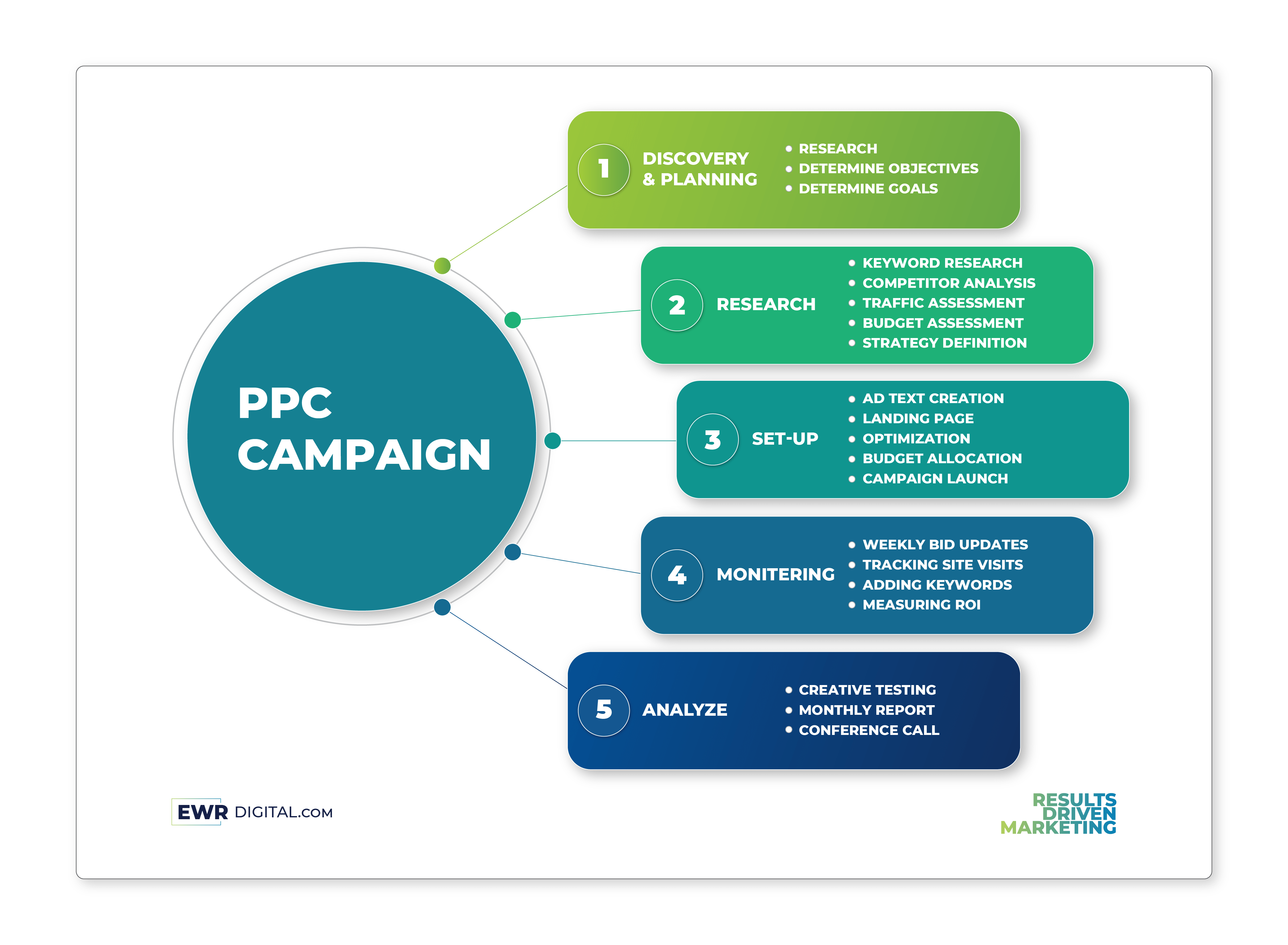Innovative SEM Agency
Dominate the Digital Landscape with Powerful Search Engine Marketing 🚀
Discover Proven Strategies for SEO and PPC Success: Drive Traffic, Convert Leads, and Maximize ROI with a strategic investment in Search Engine Marketing!
The combined power of SEO and PPC is greater than the sum of its parts. Leverage both sides of the search engine marketing equation to drive rankings and revenue. Let our experts craft an SEM strategy that will deliver outstanding results for your business.
Award-Winning Agency


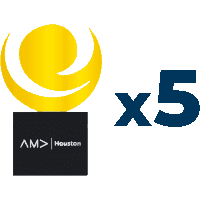

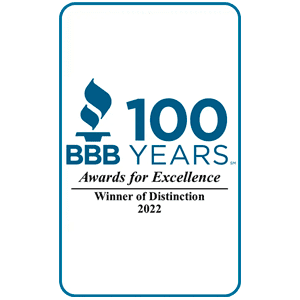
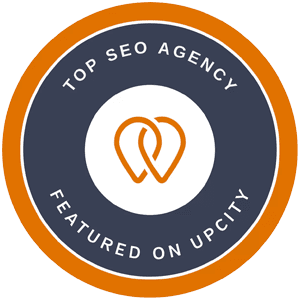
Search Engine Marketing (SEM): Common Questions
What is a Search Engine Marketing Service?
A Search Engine Marketing (SEM) service is a digital marketing offering that helps businesses improve their online visibility and drive targeted traffic to their websites through paid advertising efforts on search engines like Google, Bing, and Yahoo. SEM services typically include a range of strategies and activities aimed at maximizing the impact of paid advertising campaigns. Here’s an informational description of SEM services:
How does SEM differ from SEO?
SEM involves paid advertising to appear in search engine results, while SEO (Search Engine Optimization) is the process of optimizing a website to rank organically in search results. SEM provides immediate visibility, while SEO is a long-term strategy to improve organic rankings.
How much should I budget for an SEM campaign?
SEM budgets vary widely based on industry, competition, and goals. Start with a budget you’re comfortable with, and monitor performance. Adjust your budget based on the results and ROI you achieve.
How can I track the success of my SEM campaign?
Utilize tracking tools like Google Analytics and the advertising platform’s own reporting tools to measure key performance metrics. Track clicks, conversions, click-through rates (CTR), and return on investment (ROI) to evaluate the effectiveness of your campaign.
What are the benefits of SEM for my business?
SEM can provide several benefits, including immediate visibility, targeted traffic, measurable results, the ability to compete with larger competitors, and the flexibility to adjust campaigns in real-time for better performance.
What is PPC advertising?
PPC (Pay-Per-Click) advertising is a component of SEM where advertisers pay a fee each time their ad is clicked. It allows businesses to bid on keywords relevant to their products or services, and their ads appear in search results when those keywords are searched.
How do I choose the right keywords for my SEM campaign?
Keyword research is essential. Identify relevant keywords that potential customers are likely to search for. Use keyword research tools to find high-volume, low-competition keywords that align with your business goals.
What is Quality Score in SEM?
Quality Score is a metric used by search engines like Google to assess the quality and relevance of your PPC ads and keywords. It affects your ad’s position and cost per click (CPC). A higher Quality Score typically leads to better ad placements and lower costs.
Are there any best practices for creating effective SEM ads?
Yes, best practices include using compelling ad copy, relevant keywords, clear calls to action, ad extensions, and conducting A/B testing to refine ad performance.
Is SEM suitable for all types of businesses?
SEM can benefit most businesses, but the suitability depends on factors like the target audience, budget, and competitiveness of the industry. Smaller businesses can also benefit by targeting niche keywords and demographics.



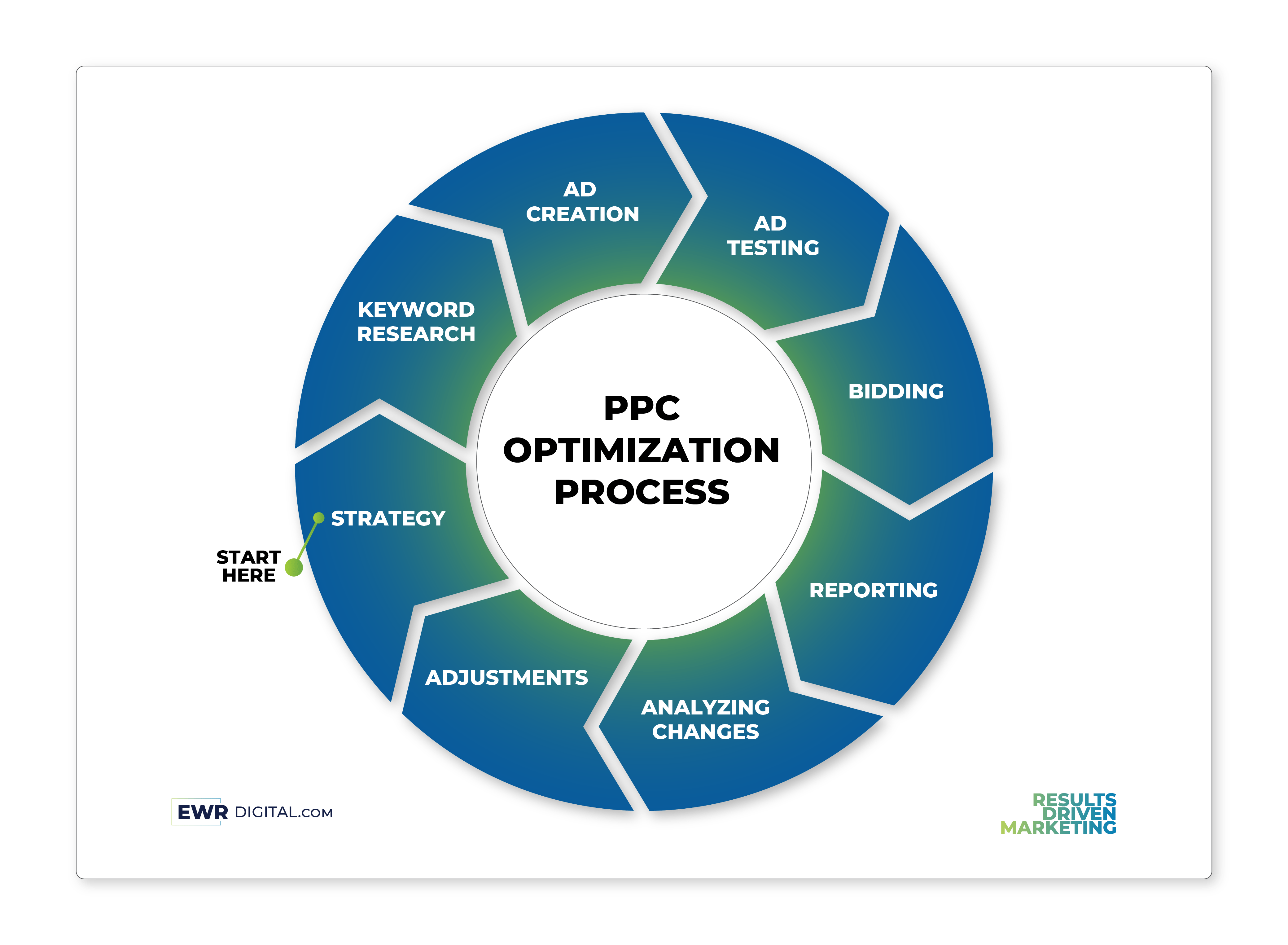
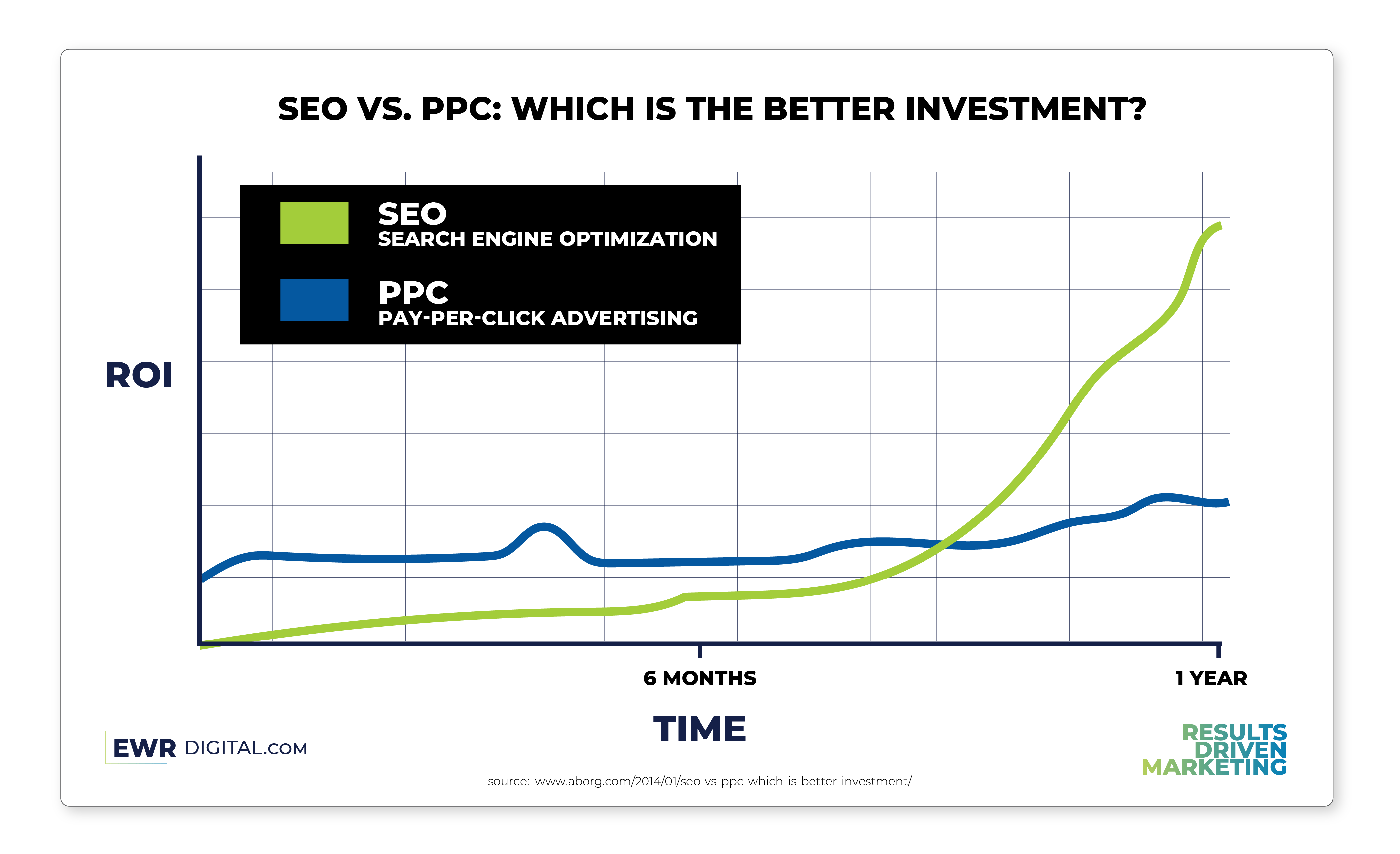
Search Engine Marketing (SEM) Services: Unlock Your Online Potential
SEM services empower businesses to reach their target audience effectively in the competitive digital landscape. Through a strategic investment in SEM our experts can harness the power of paid advertising on search engines to elevate your business and deliver measurable data driven results!
Key Components of Our SEM Services:
- Keyword Research: We conduct extensive research to identify the most relevant and high-performing keywords for your industry, ensuring your ads are seen by the right audience.
- Ad Campaign Management: Our seasoned professionals create and optimize pay-per-click (PPC) ad campaigns that deliver maximum ROI, utilizing compelling ad copy and strategic bidding.
- Ad Extensions: We leverage ad extensions to provide potential customers with more information and reasons to click, enhancing the performance of your ads.
- Tracking and Analytics: We employ advanced tracking tools and analytics to measure the success of your SEM campaigns, providing actionable insights for continuous improvement.
- Competitor Analysis: We keep a close eye on your competitors, fine-tuning your strategies to stay ahead and capitalize on emerging opportunities.
- Budget Management: We help you allocate your budget wisely, ensuring you get the most out of your SEM investment without overspending.
- Conversion Optimization: Our experts work to optimize your landing pages and ad creatives, increasing the likelihood of turning clicks into valuable conversions.
Why Choose Our SEM Services?
- Proven Results: Our track record of delivering tangible results speaks for itself.
- Targeted Traffic: We attract qualified leads and potential customers to your website.
- Transparent Reporting: You’ll have access to clear, data-driven reports to track your campaign’s performance.
- Continuous Improvement: We stay up-to-date with industry trends and adapt your strategies accordingly.
With a investment in our SEM services, your business can thrive in the digital realm, driving business growth. Contact us today to explore how SEM can elevate your online presence and boost your bottom line.
Looking for Cutting-edge SEO
We have World-Class Consultants
Setting up a Search Engine Marketing (SEM) campaign involves several steps to ensure it’s well-structured and effective. Below is a general guide on how to set up an SEM campaign:
- Define Your Goals and Objectives:
- Determine what you want to achieve with your SEM campaign. Common goals include increasing website traffic, generating leads, boosting sales, or improving brand visibility.
- Keyword Research:
- Identify relevant keywords that align with your goals. Use keyword research tools like Google Keyword Planner to find high-volume, low-competition keywords.
- Choose the Right SEM Platform:
- Decide which search engine(s) you want to advertise on. Google Ads is the most popular choice, but Bing Ads and other platforms can also be effective depending on your target audience.
- Create a Budget:
- Set a budget for your campaign. Determine how much you’re willing to spend on a daily or monthly basis. Start with a budget that aligns with your goals and gradually increase it as you see positive results.
- Campaign Structure:
- Organize your campaign into logical ad groups based on keyword themes. Each ad group should have a set of closely related keywords. This structure makes it easier to manage and optimize your ads.
- Ad Creation:
- Write compelling ad copy that includes your chosen keywords. Craft clear and persuasive headlines and descriptions. Use ad extensions (like site link extensions and callout extensions) to provide additional information.
- Landing Pages:
- Ensure that each ad group links to a relevant and optimized landing page on your website. The landing page should provide a seamless user experience and encourage conversions.
- Bid Strategy:
- Decide on your bid strategy. You can choose manual bidding, automatic bidding, or a combination of both. Bid according to your budget and campaign objectives.
- Ad Scheduling:
- Determine when your ads will run. You can schedule ads to display at specific times or days of the week to target your audience when they are most active.
- Geo-Targeting:
- Specify the geographic locations where you want your ads to appear. This ensures that your campaign reaches the right audience.
- Set Up Conversion Tracking:
- Implement conversion tracking to measure the success of your campaign. This helps you understand which keywords and ads are driving desired actions on your website.
- Launch and Monitor:
- Activate your campaign and closely monitor its performance. Pay attention to key metrics like click-through rate (CTR), conversion rate, and return on investment (ROI).
- Optimize Continuously:
- Regularly review your campaign’s performance data and make adjustments as needed. Test different ad variations, adjust bids, add negative keywords to improve targeting, and optimize landing pages.
- Review and Refine:
- Periodically review your campaign’s overall performance and refine your strategy based on the data and insights you gather.
- A/B Testing:
- Conduct A/B tests to compare different elements of your ads and landing pages (e.g., headlines, images, calls to action) to determine what works best.
- Adherence to Policies:
- Ensure your ads comply with the policies and guidelines of the advertising platform to avoid any issues or suspensions.
- Reporting:
- Use the reporting tools provided by the SEM platform to generate performance reports and analyze your campaign’s effectiveness.
The Significance of SEM (Search Engine Marketing)
SEM, or Search Engine Marketing, plays a pivotal role for several compelling reasons:
-
Enhanced Visibility: SEM elevates website or page visibility by securing prime positions in search engine results for chosen keywords.
-
Precise Targeting: SEM empowers you to pinpoint your audience based on demographics, location, and search queries, ensuring that your message resonates with your intended audience.
-
Measurable Outcomes: SEM delivers quantifiable results, enabling real-time tracking of campaign effectiveness.
-
Competitive Edge: SEM can provide a competitive edge by expanding your reach and seizing a larger share of the market compared to your rivals.
-
Increased Revenue: Through broadening your reach to a more focused audience, SEM can drive higher website traffic, leading to increased conversions and revenue.
In summary, SEM serves as a crucial marketing strategy for businesses of all sizes, facilitating the connection with target audiences, traffic generation, and ultimately, revenue growth.
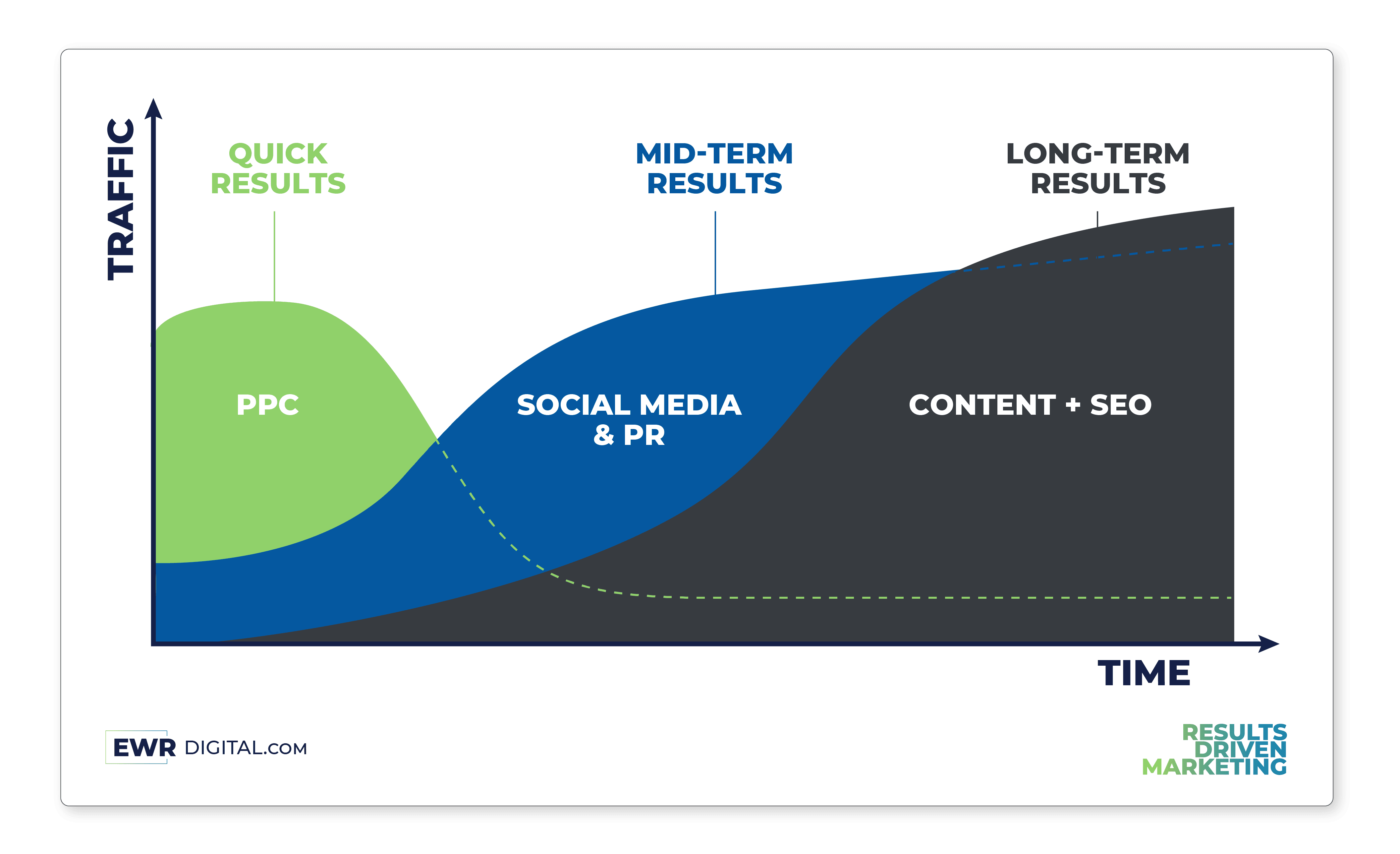
SEM vs. SEO: What’s the Difference?
In essence, “search engine marketing” (SEM) primarily involves paid search marketing, where businesses invest in Google to display their ads within search results.
On the other hand, search engine optimization (SEO) takes a different approach. Here, businesses don’t pay for clicks; instead, they earn a coveted organic spot in search results by offering the most relevant content for specific keyword searches.
Both SEO and SEM should serve as integral components of your online marketing strategy. SEO excels at generating consistent, long-term traffic at the top of the funnel, while search engine advertisements provide a cost-effective means to drive conversions at the bottom of the funnel.
So, SEO is indeed a vital part of SEM, but SEM also encompasses paid advertising efforts on search engines. Both paid and organic strategies can be used in tandem to improve a website’s online presence and drive relevant traffic.
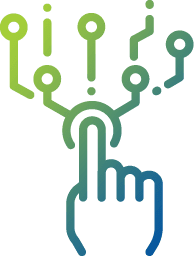
Search Engine Marketing (SEM)
SEM is a broader term that encompasses all activities aimed at promoting a website’s visibility in search engine results. It includes both paid advertising (like pay-per-click or PPC campaigns) and organic strategies (like SEO). In other words, SEM involves all efforts to increase a website’s visibility on search engines.

Search Engine Optimization (SEO)
SEO is a subset of SEM that specifically focuses on optimizing a website to rank higher in organic (non-paid) search engine results. SEO involves various on-page and off-page techniques to improve a website’s content, structure, and authority, making it more attractive to search engine algorithms.
Free Search Engine Marketing Consult
🚀 Click Here to Get Found on Google
👉 Expert Keyword Research 👉 High-Performing Campaigns 👉 Proven Results
Take action today, and transform your online presence. Our SEM services are tailored to deliver immediate impact and lasting results. Don't wait—start driving traffic and growing your business right away.
Schedule a Consultation Today!

